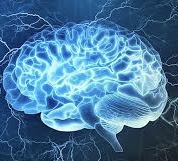NASH PR: CytoDyn Initiates Phase 2 Clinical Tri
Post# of 157604

CytoDyn Initiates Phase 2 Clinical Trial With Leronlimab for Treatment of NASH
https://www.cytodyn.com/newsroom/press-releas...leronlimab
June 11, 2020 6:59pm EDT
Preclinical results demonstrated leronlimab effectively inhibited fatty liver development
VANCOUVER, Washington, June 11, 2020 (GLOBE NEWSWIRE) -- CytoDyn Inc. (OTC.QB: CYDY), (“CytoDyn” or the “Company"
As previously reported, the Company’s preclinical study demonstrated strong positive data highlighting the potential of leronlimab in treating nonalcoholic fatty liver disease (NAFLD), a common precursor to nonalcoholic steatohepatitis (NASH). These data, along with previous findings showing that leronlimab inhibits liver fibrosis, suggests the potential of leronlimab to control both the early and late stages of NASH.
There are currently no U.S. Food and Drug Administration (FDA) approved treatments for NASH and it is expected to be the number one cause of liver transplant by 20201. About 30 to 40 percent of adults in the U.S. are living with NAFLD, and 3 to 12 percent of adults in the U.S. are living with NASH2.
Nader Pourhassan, Ph.D., President and Chief Executive Officer of CytoDyn, commented, “We are excited to continue to advance the evaluation of leronlimab for a potential therapeutic benefit for NASH, a disease with an increasing prevalence in the U.S. Our strategic plan to execute a multi-pathway approach to exploring all potential benefits of leronlimab has led to cancer, COVID-19 and now potentially NASH, along with other immunologic indications.”
This is a 90-patient, multi-center, randomized, double blind, placebo-controlled Phase 2 three-arm study of the safety and efficacy of leronlimab in adult patients with NASH. NASH is a chronic liver disease characterized histologically by the presence of hepatic inflammation and cell injury due to hepatic fat accumulation (steatosis) equal or superior to 5% of hepatocytes. NASH develops in the absence of excessive alcohol consumption but is linked to unhealthy eating habits and lack of physical activity.
About Nonalcoholic Steatohepatitis (NASH)
Nonalcoholic steatohepatitis (NASH) is a chronic liver disease characterized histologically by the presence of hepatic inflammation and cell injury (hepatocellular ballooning) due to hepatic fat accumulation (steatosis) equal or superior to 5 percent of hepatocytes. Unhealthy eating habits and lack of physical activity in the absence of excessive alcohol consumption contributes to the development of NASH. NASH can progress to high‐burden conditions such as cirrhosis, end-stage liver disease, and hepatocellular carcinoma (HCC). NASH is expected to become the leading cause of liver transplantation by 2020 in the United States3. NALFD is the most common form of chronic liver disease, affecting about 30 to 40 percent of the population in the United States4. An estimated 3 to 12 percent of the adult population in the United States have NASH5, of which approximately 15 to 20 percent will likely progress to advanced fibrosis or cirrhosis6. Despite its very high burden, there are currently no approved pharmacological therapies for NASH. Available therapies focus solely on treating NASH comorbidities, such as obesity, type 2 diabetes mellitus (T2DM) and cardiovascular disease (CVD), while NASH management options focus on lifestyle changes, based on diet and exercise, and control of the associated comorbidities. Lifestyle changes have demonstrated the greatest benefit in improving steatosis and mild fibrosis; however, as patients with advanced fibrosis due to NASH are at a significantly higher risk of liver‐related mortality, pharmacological treatments are urgently needed7.
 (6)
(6) (0)
(0)